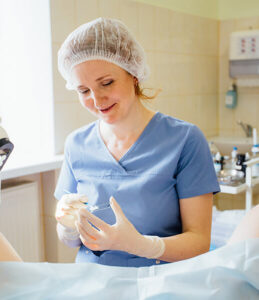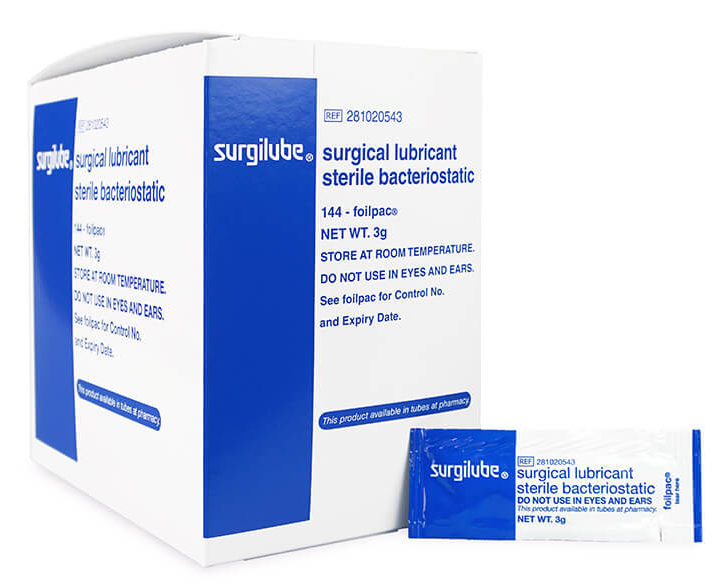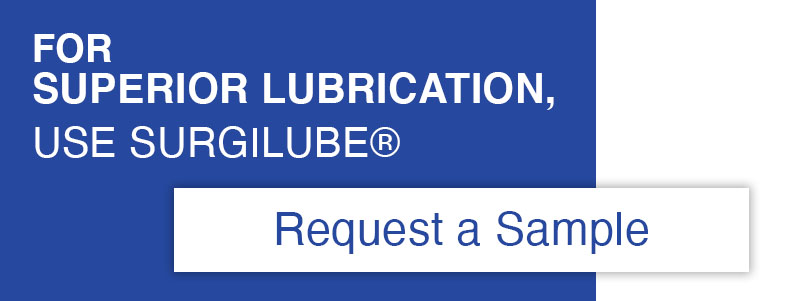Reducing Unsatisfactory Pap Tests with a Carbomer-Free Lubricant
Pap tests were introduced in the 1940s and have been the greatest contributor to the overall decline in cervical cancer, reducing deaths by 70 percent over the last 50 years.
Pap tests collect cells from the cervix to look for precancer or cell changes that could become cervical cancer.
Cervical cancer is most frequently diagnosed in women between the ages of 35 and 44, with the average age at diagnosis being 50. Current recommendations for cervical cancer screenings range from three to five years, depending on a women’s age.
Pap test results can come back normal or abnormal, but a pap test may also come back as unsatisfactory and result in retesting.
What is an Unsatisfactory Result?

An unsatisfactory pap test indicates the inability for the lab to identify cervical epithelial abnormalities.
Although UNSAT rates are relatively low, reportedly around 1.1%, it is critical for hospitals and health systems to provide accurate pap test results.
Hospitals and health systems can reduce unsatisfactory pap test results with proper education and retraining of healthcare workers and doctors and by using an approved carbomer-free lubricant.
Avoid Using Unapproved Lubricants
If your facility has seen an increased number of unsatisfactory pap tests, make sure to check your medical supply closet, as one of the most common reasons for an UNSAT result is due to using the wrong medical lubricant.
Hospitals and health systems should avoid using lubricants containing carbomers during pap tests because they can significantly decrease specimen adequacy.
Carbomer is a thickening or binding agent and can interfere with cell collection due to the liquid-based methodology that pap tests utilize. Carbomer clots up in the liquid preservatives and prevents the cells from adhering to the slide. If this occurs and there is not enough cell coverage, the specimen is considered a false negative or unsatisfactory.
To help reduce unsatisfactory results, hospitals and health systems should use a carbomer-free lubricant, such as Surgilube®, which has been shown not to significantly affect specimen adequacy.
Unsatisfactory Results Cost Money
Unsatisfactory results are rather annoying for patients and can be costly for a hospital or health system. Although retesting costs vary depending on the facility, any money spent on retesting is money your facility could have saved if proper collection techniques were followed. Just look at the table below to see how much money you could save if your facility used Surgilube® Sterile Surgical Lubricant with liquid-based methodology.
| Unsat Rate | # of Repeats per Year | Estimated Cost of Repeat Testing* |
|---|---|---|
| 2% | 440 | $88,000 |
| 4% | 880 | $176,000 |
| 6% | 1320 | $264,000 |
| 8% | 1760 | $352,000 |
| 10% | 2200 | $440,000 |
*Based on 22,000 exams per year at a cost of $200 per repeat. Actual costs vary.
Test Less with Surgilube®

With a unique, carbomer-free formulation, Surgilube® Sterile Surgical Lubricant is proven to reduce UNSATs, which increases patient satisfaction while giving YOU the satisfaction of focusing on what you do best: providing quality care.
If you are interested in learning more about the true cost of unsatisfactory pap tests, contact us today to schedule a meeting or to request a free sample.
See How Surgilube® Can Improve Your UNSATs
Fill out the form below to request a free sample of Surgilube® Sterile Surgical Lubricant.
